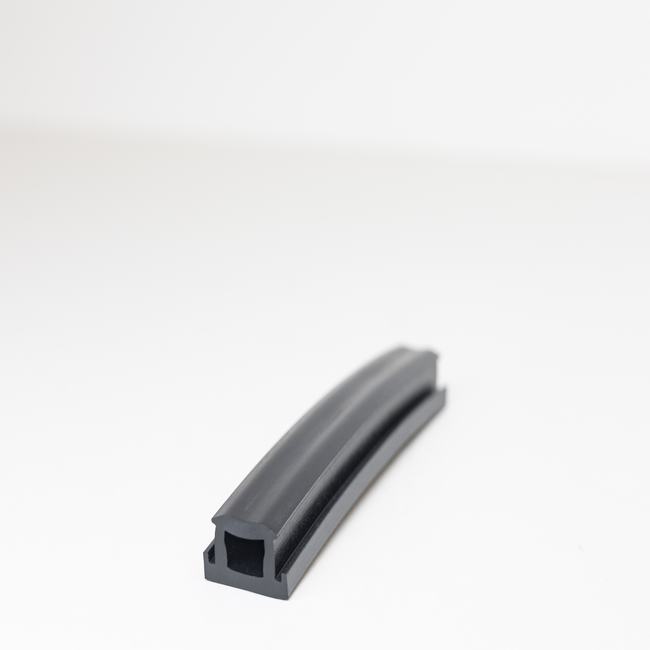Industrial seals, also known as mechanical seals or industrial gaskets, are essential components used in various industrial applications to prevent leaks, protect machinery, and ensure the safe and efficient operation of equipment and processes. These seals come in a wide range of designs, materials, and configurations, catering to diverse industrial needs. In this extensive description, we’ll delve into the comprehensive details of industrial seals, their functions, types, materials, installation, maintenance, and applications.
Functions:
Industrial seals serve several vital functions in industrial settings:
- Leak Prevention: The primary role of industrial seals is to prevent leaks of liquids, gases, or powders from equipment or machinery. This is crucial for avoiding environmental contamination, safety hazards, and loss of valuable resources.
- Protecting Equipment: Seals protect the moving parts and internal components of industrial machinery from exposure to harsh environmental conditions, such as dust, debris, chemicals, and extreme temperatures, extending the lifespan of equipment.
- Enhancing Efficiency: By preventing leaks and maintaining a sealed environment, industrial seals help improve the efficiency and performance of machinery and processes, reducing energy consumption and operational costs.
- Safety: In applications involving hazardous materials or high pressures, industrial seals play a critical role in ensuring the safety of personnel and the surrounding environment.
- Reducing Maintenance: Properly selected and maintained seals reduce the need for frequent equipment maintenance, downtime, and associated costs.
Types of Industrial Seals:
Industrial seals come in various types, each designed for specific applications and environments. Common types include:
- Mechanical Seals: These are used in rotating equipment, such as pumps and compressors, to prevent the leakage of liquids or gases along the rotating shaft. Mechanical seals consist of multiple components, including stationary and rotating parts, springs, and sealing faces.
- O-Rings: O-rings are circular, elastomeric seals used in static and dynamic applications to create a tight, compressible seal between two mating surfaces. They are widely used in hydraulic systems, plumbing, and machinery.
- Gasket Seals: Gaskets are flat, compressible seals used between two flat surfaces, such as flanges, to prevent leaks in pipelines, pressure vessels, and machinery. They come in various materials, including rubber, cork, and metal.
- Diaphragm Seals: Diaphragm seals consist of a flexible diaphragm that isolates the process fluid from a measuring instrument, ensuring accurate pressure or level measurement. They are commonly used in the chemical and pharmaceutical industries.
- Lip Seals: Lip seals, often referred to as oil seals, are used to prevent the escape of lubricating oil or the entry of contaminants in machinery like engines and gearboxes.
- Piston Seals: These seals are used in hydraulic and pneumatic cylinders to prevent leakage between the piston and the cylinder bore.
Materials:
The choice of material for industrial seals depends on factors such as the operating conditions, temperature, pressure, chemical compatibility, and industry-specific requirements. Common materials include:
- Elastomers: Rubber materials such as nitrile, silicone, Viton, and EPDM are widely used for their flexibility and resistance to various chemicals and temperatures.
- Metal: Metal seals, often made from stainless steel or copper, are employed in high-temperature and high-pressure applications.
- PTFE (Polytetrafluoroethylene): PTFE is known for its excellent chemical resistance and is used in various industrial seals, particularly in aggressive chemical environments.
- Composites: Some seals combine multiple materials, such as rubber with metal reinforcements, to provide durability and flexibility.
Installation and Maintenance:
Proper installation and maintenance are essential for the effective performance and longevity of industrial seals. Key considerations include:
- Careful inspection of mating surfaces to ensure they are clean and free of defects.
- Correct sealing pressure and torque to avoid over-compression or under-compression.
- Regular inspection for wear, damage, and signs of leakage.
- Lubrication and appropriate cleaning procedures for seals subjected to dynamic movement.
Applications:
Industrial seals are utilized in a wide range of applications across various industries, including:
- Chemical Processing: Seals are used to prevent leaks in pumps, reactors, and pipelines handling corrosive chemicals.
- Oil and Gas: Seals are essential in wellheads, valves, and pipelines to prevent the escape of hydrocarbons and protect against environmental contamination.
- Food and Beverage: Seals are used in processing equipment to ensure hygiene and prevent contamination.
- Pharmaceuticals: Seals maintain the integrity of bioreactors, pharmaceutical packaging, and various processing equipment.
- Manufacturing: Industrial seals are found in hydraulic and pneumatic systems, compressors, and general machinery to maintain performance and prevent leakage.
- Automotive: Seals are used in engines, transmissions, and axles to prevent the leakage of lubricating fluids.
- Aerospace: Aerospace applications employ seals in engines, landing gear, and hydraulic systems to ensure safety and performance.
Benefits:
The use of industrial seals offers numerous benefits:
- Leak Prevention: Industrial seals are crucial for preventing costly and potentially dangerous leaks.
- Equipment Protection: They extend the lifespan of machinery and reduce maintenance requirements.
- Efficiency: Seals improve energy efficiency and process performance.
- Safety: They contribute to the safety of personnel and the environment in hazardous applications.
- Cost Savings: By preventing leaks and reducing downtime, industrial seals save on operational costs.
In conclusion, industrial seals are fundamental components of industrial processes, machinery, and equipment, serving various functions that are essential for operational efficiency, safety, and environmental protection. The diverse types, materials, and applications of industrial seals make them indispensable in a wide range of industries. Proper selection, installation, and maintenance of these seals are critical to achieving optimal performance and safety in industrial operations.


